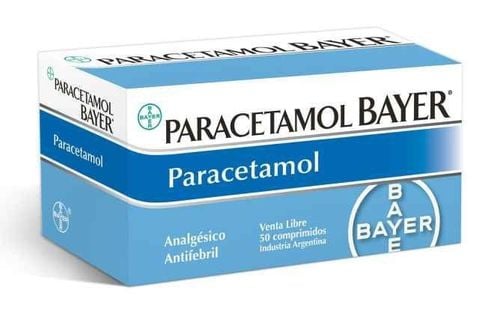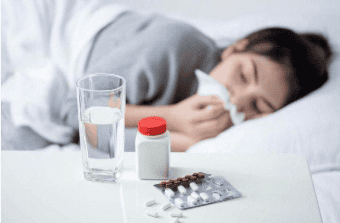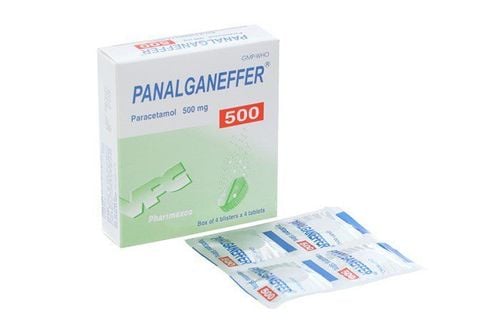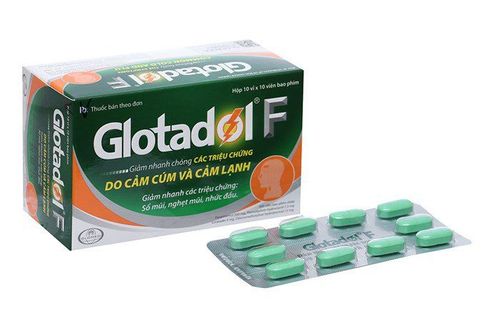This is an automatically translated article.
Acetaminophen and Diphenhydramine is a combination medicine that helps treat headaches, sneezing, runny nose, watery eyes, pain or fever caused by allergies, the common cold, or the flu. In particular, Acetaminophen helps relieve pain and fever, and Diphenhydramine is an antihistamine that helps relieve symptoms of sneezing, itching, watery eyes and runny nose.
1. Instructions for taking Acetaminophen and Diphenhydramine
During treatment, patients need to adhere to the correct dose as directed on the drug label. Do not use Acetaminophen and Diphenhydramine for longer than recommended because an overdose of Acetaminophen can lead to liver toxicity, affecting the patient's health, even causing death.
2. Acetaminophen and Diphenhydramine side effects
In some cases, the combination of Acetaminophen and Diphenhydramine can cause side effects such as:
Constipation; Blurred vision, dry eyes; Dry mouth or dry nose; Feelings of restlessness, excitement (especially in children); mild dizziness, trouble concentrating, or drowsiness;
Mild skin rash. Patients should stop taking this medicine and call their doctor at once if they have the following signs:
Tachycardia, irregular heartbeat; Severe dizziness; Drowsiness, slow breathing and shallow breathing; Trembling, abnormal muscle movements; Have flu symptoms; Easy bruising and unusual bleeding; pale skin or jaundice, yellow eyes; Dark urine or clay-colored stools.
3. Note before taking the drug
The combination of Acetaminophen and Diphenhydramine should not be used in the following cases:
Patients with severe constipation, with obstruction in the stomach or intestines; Have untreated or uncontrolled medical conditions, eg: glaucoma, heart disease, asthma, overactive thyroid; People who are having problems urinating: urinating little or no pee. In addition, patients should consult a doctor before taking the drug if they have the following problems:
Kidney disease; Cough with mucus, or cough due to emphysema or chronic bronchitis; Are taking potassium (Cytra, Epiklor, K-Phos, K-Lyte, Kaon, Polycitra, Klor-Con, Urocit-K); Enlarged prostate, problems urinating; Have a history of alcoholism, or are consuming more than 3 alcoholic beverages per day; Always consult your doctor before and during the treatment of children, pregnant and lactating women. Other notes:
To avoid an increased risk of liver damage, avoid alcohol during treatment with this drug combination.
4. Drug interactions
Drugs that can interact with Acetaminophen and Diphenhydramine include many types: both prescription and over-the-counter medicines, vitamins and herbal products. Because Acetaminophen is often found in many combination medicines, taking more than one medicine together can cause an overdose reaction, even leading to a risk of death. Therefore, users need to talk to their doctor about all the medicines they are using, about to use to avoid unwanted side effects. Acetaminophen and Diphenhydramine is a combination medicine that helps treat headaches, sneezing, runny nose, watery eyes, pain or fever caused by allergies, the common cold, or the flu. In particular, Acetaminophen helps relieve pain and fever, and Diphenhydramine is an antihistamine that helps relieve symptoms of sneezing, itching, watery eyes and runny nose. To ensure effective use and avoid side effects, users need to strictly follow the instructions of the doctor or pharmacist.
Follow Vinmec International General Hospital website to get more health, nutrition and beauty information to protect the health of yourself and your loved ones in your family.
Please dial HOTLINE for more information or register for an appointment HERE. Download MyVinmec app to make appointments faster and to manage your bookings easily.













